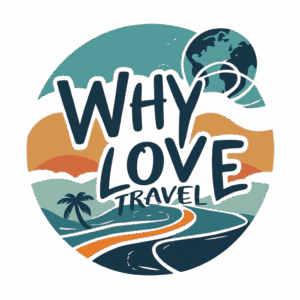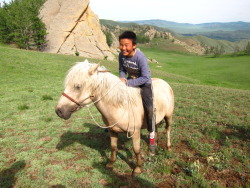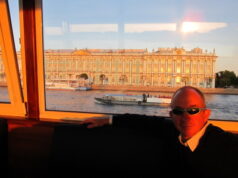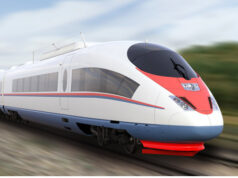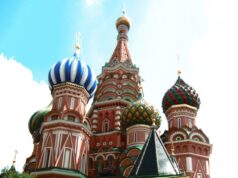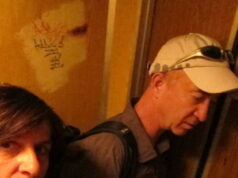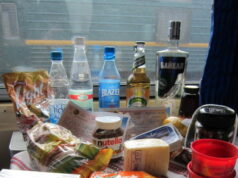A chaotic journey across half the planet by train — where bad planning collides with blind luck and sheer stubbornness keeps the story moving.
Chapter Three: Buddha’s Country
If Montana is called “God’s Country” this must be “Buddha’s Country”. Big Sky, Blue Sky, River Runs Through It…. Choose any cliché. They all apply. It is breathtaking.
Thanks to the help of the brilliant people at Great Ghengis Tours & Expeditions, we managed to escape Ulaan Baatar within 15 hours of our clueless disembarkation from Train K23. Ulaan Baatar shows all the tired signs of a failed communist (or former communist) state. Every building seems to need a thorough scrubbing or at least a new coat of paint. There is an appalling amount of traffic on the pot-holed streets even though there aren’t very many cars. The skyline is dotted with half a dozen skeletal remains of abandoned high rise construction projects. Urban planning, which should be a given in a control economy, falls away to a jumbled mess of sub-standard buildings constructed by petty developers with just enough cash and connections to get whatever permits they need. Bureaucrats become the modern bandits. Shit-faced and dead-eyed old men with weather beaten faces trudge through the drizzling rain to or from day labor gigs. They represent a lost generation that was forced or enticed away from their pastures to the big towns and cities when Stalinist leaders stubbornly insisted that heavy industry would save the day, anywhere, anytime.
I’ve never fully understood the way big cities in developing countries lure the rural folk. Without ever thinking it through, I always assumed that the rural alternative must be truly horrific: starvation, deprivation, utter filth….that kind of stuff. Why else would anyone ‘upgrade’ to the lower rungs of the urban ladder? Sure, there will always be those that are attracted to big city, bright lights and the one-in-a-million chance of making it big. But this doesn’t fully explain the crushing numbers. Mongolia has only 2.7 million people and over 1 million of them are crammed into this dump. The alternative to city slum life must be far worse, I always thought. But the more time I spend in rural areas the more my weak hypothesis crumbles in the face of evidence. I’ve seen this across Southeast Asia and now it’s in my face in Mongolia. Fortunately, I am told, many Mongols figured this out long before me and they are leaving the cities because there are better opportunities in the semi-nomadic life of the herder. It’s not about a return to a simpler, ‘nobler’ life while taking a giant leap backwards away from modernity. I am not trying to romanticize this life, I am sure it is not always easy. What life worth living is? I honestly think there is as much (or more) opportunity for clever, hard working people in the rural trades as there are in the cities. And this is because living a rural life no longer means you have to be isolated or ill informed. This is what has changed.
There is potential for real revolution now and it’s going to be in the country-side. It will be led not by demagogues or mass murders like the psychopathic Khmer Rouge and Pol Pot masquerading as rural reformers. It will be led by cell phones, satellite dishes and internet connectivity. Communication, connectivity and free flowing information are changing just about every social contract and every industry on the planet. If you are reading this, you will know what I mean. It hasn’t fully reached the rural regions of the developing world but that is happening now. The life of a small farmer, herder or rural merchant will be changed just as profoundly as ours. It will be changed by the same, ever cheaper, technology that you now take for granted.
Odile asked Amka, our savior from Chengiss Expeditions: “If you want to visit your uncle the nomad, how do know where to find him?”. The answer “Call him on his cell phone and ask him where he is, of course”. When you find your uncle he’ll be on a lush steppe with enough shades of emerald to make the greenkeeper of Augusta National cry. Weather beaten granite cliffs are in the distance and if you tilt your head just so, or squint your eyes just enough, you can see sculptures of wolves, one Ghenkis Kahn’s warrior, an eagle or dinosaurs. You’ll think: this is the kind of setting that tourists will pay good money to visit! Your cousins will be galloping in from a 50km ride to check on the herds. And the chances are good you will trip over a satellite dish outside your Uncle’s Ger if you don’t watch your step. It won’t be long before you interrupt him checking global yak wool prices on the internet and then be forced into a boring debate on whether he should shear the yak this month or next. I can see the day when your cousins are finding a wayward horse that has wondered from the herd by tracking the GPS tag that has been inserted just under your family’s brand.
Already there is a pride and sense of purpose in the people we see. This is not poverty, it’s not stubborn elders insisting on tradition, it’s not a hopeless subsistence life we are witnessing. If it were, we’d see some local equivalent of archetypes of the terminally impoverished where the only inheritance to pass down a generation is a propensity for substance abuse and the wheel-less, car jacked-up on cinder blocks surrounded by a lawn of broken beer bottles. Here in the steppes of Mongolia, even the dogs hold their heads up high. They aren’t mean but they are firm in their work. And they do work. One of them kindly but sternly escorted me past his family’s camp on a morning run yesterday.
Give these people information and the tools to access it. Get them closer to the markets and buyers of the things they produce. Give them a say and let them work together but remain independent. We’ll create a new techno-word for what they do and call in crowd-supply. That’s what they need. Not another renovated but still crumbling Soviet era apartment building in Ulaan Baatar and a job at that beer bottling plant next door.
We have been lucky to spend two nights in Buddha’s country. It rained the first day by that hardly mattered. We are especially glad that despite our poor planning we managed to get out to the country side. It would have been a real waste to spend these days in Ulaan Baatar. We have seen much in a short time and wouldn’t hesitate to come back.
Buddha would be pleased about one thing more we are seeing: a strong revival of His culture. Monasteries and even meditation centers are being re-built. Traveler’s prayer flags and rock piles dot the landscape. They add nice color our photo album.
I am not a big proponent of politicized and organized religions. On this and a great many other things I would agree with Karl Marx and the ‘opiate of the masses’ stuff he espoused. But the least harmful of the lot would have to be the Buddhist. And in Mongolia they really deserve a break. The zealots who twisted Mr. Marx’s ideas went on to destroy hundreds of monasteries and temples and murder more than 10,000 monks. We think it’s nice that Buddha is back. If warrior-priests like George Bush can thank God for Montana, we think it’s fair enough to raise a glass of Chinggis Gold Vodka and thank Buddha for Mongolia.

